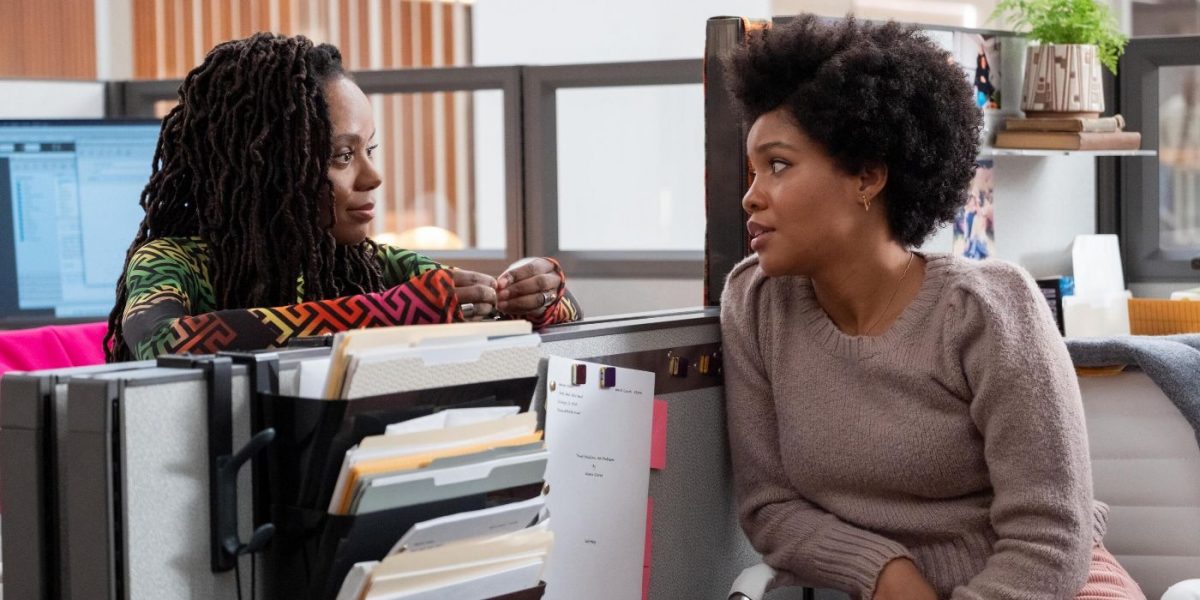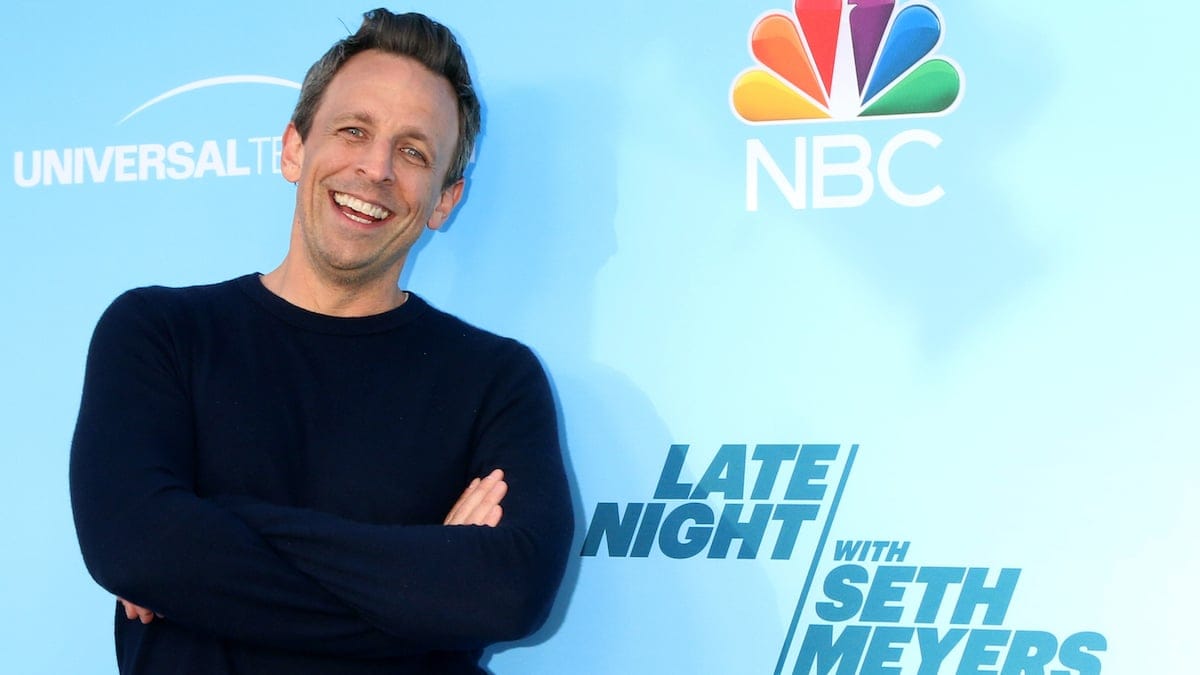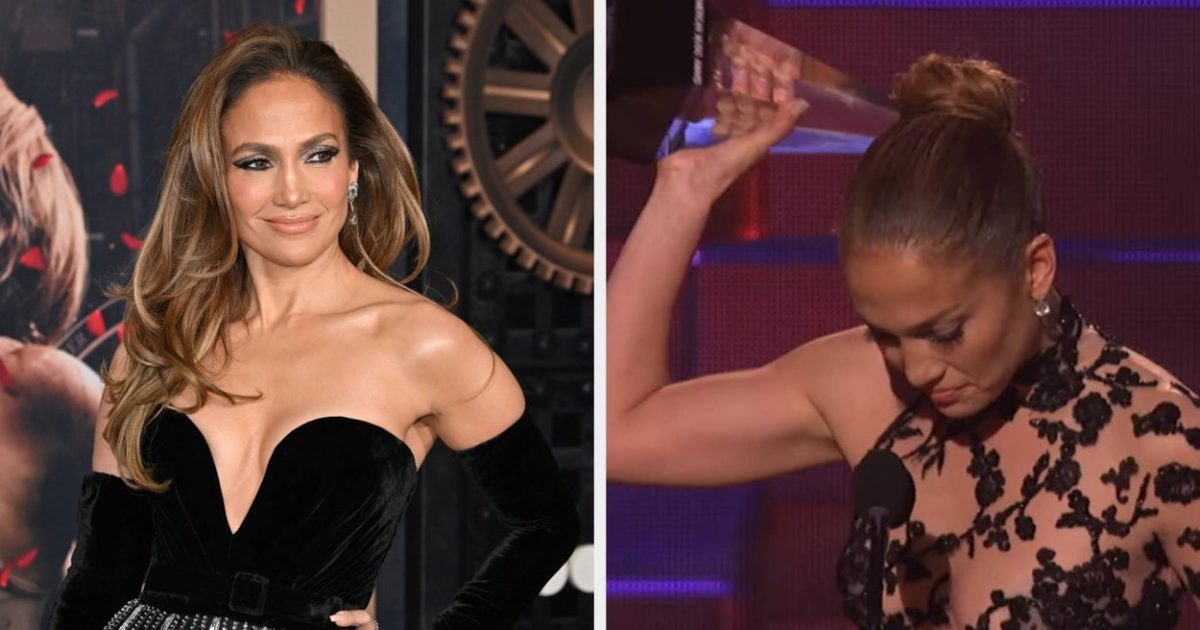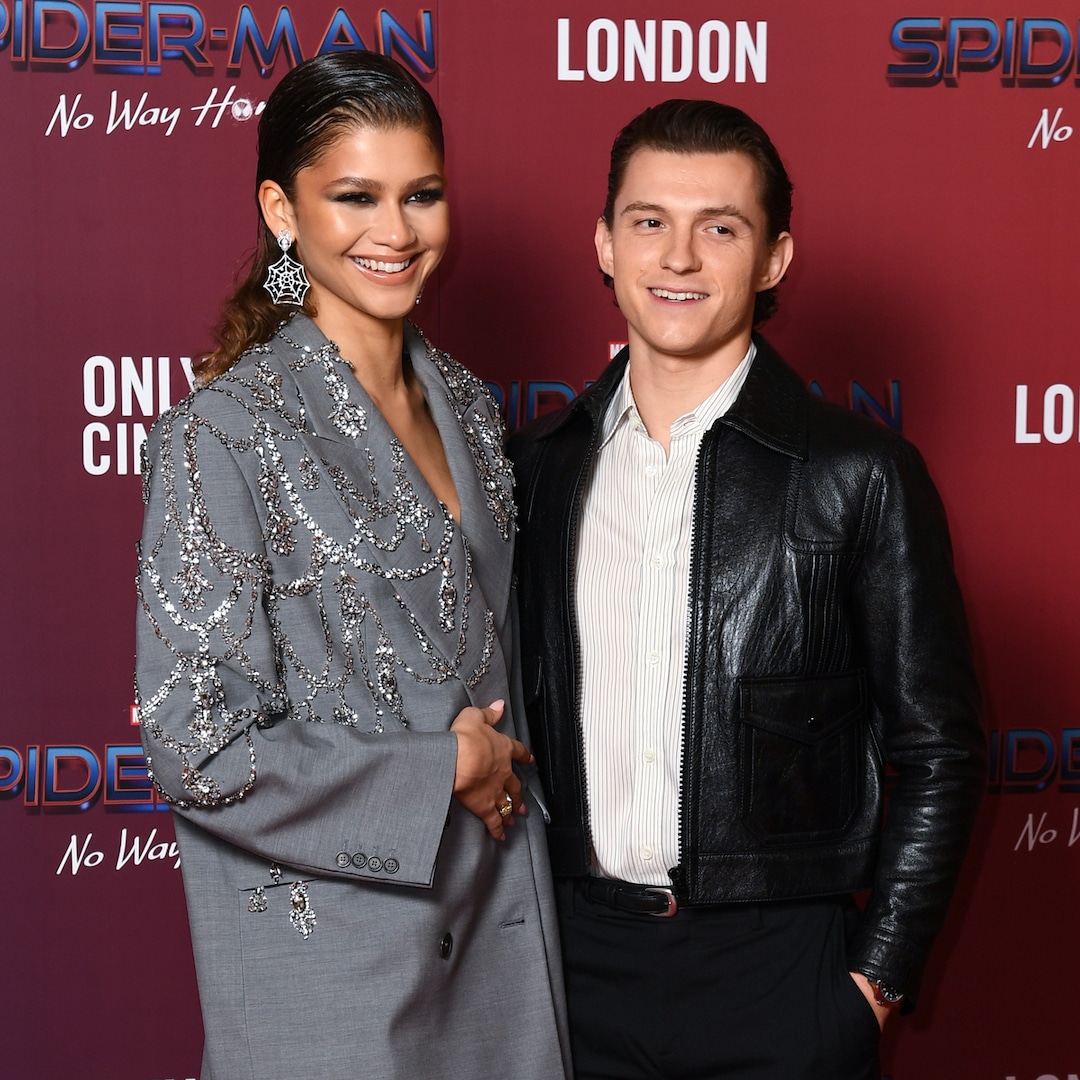
‘The Other Black Girl’ EPs on the Show’s Changed Ending and Season 2 Plans
Sep 23, 2023
Editor’s note: The below interview contains spoilers for the season finale of The Other Black Girl.
When Zakiya Dalila Harris’ book The Other Black Girl first debuted in 2021, it was an immediate success. Inspired, at least in part, by Harris’s own experiences in the publishing industry, the novel follows the character of Nella Rogers, who discovers a strange and long-standing conspiracy within the company she works for, Wagner Books. Based on the premise alone, calling it a thriller wouldn’t be inaccurate, but the book also weaves in thoughtful elements of comedy and commentary, making it truly unputdownable. It’s fitting, then, that Hulu’s recent adaptation of The Other Black Girl, produced by Onyx Collective, is just as addictive to watch as the book was to read, with a conceit that drives you to keep pressing play all the way through to the end.
On the day of the series premiere, Collider had the opportunity to speak with Jordan Reddout and Gus Hickey, who serve as executive producers alongside Harris herself as well as Rashida Jones, who helped bring the novel to the screen. Over the course of the interview, which you can read below, Reddout and Hickey discuss how they first became involved with the project, balancing between the thriller and comedy elements, and the process behind finding their lead in Sinclair Daniel, who plays Nella. They also discuss why the ending of the series was changed from the book and their hopes for a second season given that the story leaves things somewhat more open-ended. Note: This interview was coordinated with Reddout & Hickey’s personal representatives in accordance with the WGA strike rules. They are participating in their capacity as executive producers.
Collider: How did this project first come across your desk? What was that initial discovery process?
JORDAN REDDOUT: I read the book when it first came out years ago, before we had any inkling that this was going to be a TV show. But I loved the book at the time and had everyone in my universe read it – my family, my friends, just because I connected with it so much, and I loved it so much. Then we heard that it was going to be made into a TV show because Tara Duncan and Onyx bought the rights, and Rashida [Jones] and Zakiya [Dalila Harris] were adapting the book into a pilot.
From the second we found out that it was going to be a TV show, we called our reps, and we were like, “Please, whatever you have to do to get us in the room, please.” We turned down other jobs, we just had our eye on it from the beginning. Then we had a fantastic meeting with Rashida and Zakiya about it, and it was like a wonderful mind meld. They had so many great ideas, and we brought in a lot of ideas that they seemed to really respond to — and we started working on it last June.
Gus, had you read the book prior to finding out that a TV show was going to happen? Or did you hear about the project and then pick up the book?
GUS HICKEY: I had heard about the book from Jordan, [but] I had not read the book until we got a meeting on the show with Rashida and Zakiya, and I read the book in, I don’t know, two, three days? It just really resonated with us because of its sense of humor, and Jordan and I really responded to it. That’s sort of how we see the world. It deals with really, really serious subject matter, and the world itself is really, really serious in general just outside of the book. The world is very sad, and lots of really terrible things happen all the time to really nice people. As outsiders — as a black woman, as a gay man — I think we have always been in the comedy space because you have to see the ridiculousness in the world or you won’t survive, you just won’t.
REDDOUT: You’ll just cry.
RELATED: ‘The Other Black Girl’: Release Date, Trailer, Cast, and Everything We Know So Far
Image via Hulu
Otherwise, the world is too heavy.
HICKEY: Exactly. When I read the book, Nella just has this indomitable sense of humor; she sees that everything is ridiculous, and Malaika [does] as well. There are elements of the story and there are elements of the tale that are outside the realm of physical possibility, obviously. The fact that that is happening to you – as a metaphor for someone who goes through the world and isn’t necessarily fully seen or has to hide part of themselves to survive – you question whether or not other people see what you’re seeing, and you just have to have a sense of humor about that because that’s the only way to deal with the next thing that’s crazy, and the next thing that’s crazy, and the next thing that’s crazy.
One of the things that the book and also the show do really well is that really deft balance of thriller and comedy elements. How did that change your approach to the show at all? Was there anything that was a little bit difficult about getting that tone right and striking that balance?
REDDOUT: Yeah, it is a difficult balance to strike, and we were very, very careful throughout the season with the plotting of it, making sure that we never dropped any threads, that we kept the mystery alive, that we kept the genre elements alive. As Gus was saying, it was also incredibly important to us to keep the comedy alive. Honestly, that was the easiest part for us because we did come up as comedy writers, and every show we’ve ever written for, except for one, is a half-hour comedy. You learn these sorts of comedic almost-rules, or you get into a way of writing that feels sort of like second nature when you’re a comedy writer. “Okay, cool, every scene must end with a joke.” There has to be a button. So, where’s that button? Even if there’s something spooky going on, it’s our natural instinct, and sometimes we had to fight that natural instinct to undercut with a joke. But I think most of the time that instinct actually paid off and gave us the very unique tone of this show.
Another aspect that stood out to me in the show is the sense of ominousness and the greater conspiracy start to get teased out a little sooner than in the book. Why did you want to bring those aspects of the story in earlier?
REDDOUT: Well, they’re fun. They’re fun to play with, but I also think that every single episode of the show, we wanted to have those elements of horror and comedy. If we’d stuck with the timeline of the book, you’re able — because it’s a novel — to spend so much more time just in Nella’s head, letting you the reader get to know her and the inner workings of her mind. You can’t do that in TV. You just have to get to the story faster, the meat of the story. It made a lot of sense for us to go ahead, and once we realized that the pace was, out of necessity, going to be faster in the show, those spooky elements sort of naturally came into the story.
Image via Hulu
With Sinclair, you always know exactly what Nella is thinking. Even if she’s not saying anything, it’s all written all over her face. In terms of the casting process, how hard was that to find your leads, both Nella and Hazel?
HICKEY: We saw a lot of very, very, very good actors for both. But they were both pretty undeniable. It was very, very clear that these were the two, and we couldn’t be more lucky that we found them.
REDDOUT: It took months. It took a long time. But once we saw them, and especially once we saw them together, it was pretty obvious. First of all, they’re such professionals, they’re so hard-working, they’re so dedicated, and they really understood what we were trying to do with the show, and they trusted us very quickly, and that’s so huge. Because there was early trust, it was able to be a much more collaborative experience, and a lot of what you see in subtle shifts — or larger shifts, even — from the novel to the TV show in those characters, a lot of that was driven by who Sinclair and Ashleigh [Murray] are. To be totally honest, working with Ashleigh was sort of the catalyst for us realizing that Hazel really maybe does want to be friends with Nella, and to have that as her underlying subtext changes things. It really shifts their dynamic and shifts the way we were telling the story about the two of them throughout the season. It was just amazing to work with them. I love them so much.
Hazel is a character in the book who we don’t really get to know very well in terms of her backstory, which is why I really love the standalone episode. What was the intention behind building out that backstory, giving her more of a motivation? Was it to make her a more fully realized character [and] add that dimension?
HICKEY: Our main question with the show was “How much of yourself are you willing to sacrifice in order to succeed?” In any context. We really wanted to emphasize that there is no right answer to that question. It’s sort of an unanswerable question, and every person on the show answers it differently and across generations. We wanted to show the parallel between Diana and Kendra Ray, and Nella and Hazel, and how all four of the women answer the question differently. Specifically, for Hazel, we wanted it to be clear that not everyone is just evil and not everyone is just good. Everyone makes mistakes. All four of these women are messy and complicated and have made sacrifices in ways that our viewers will relate to and won’t relate to. It was very important for us to show different sides of Hazel, and to really make that offer in the finale to Nella make sense, and for Nella to actually consider it, and for the audience to consider it.
Image via Hulu
Speaking of the finale, I was surprised by the ending because the book paints it one way, with Nella getting sucked into the conspiracy entirely, but in the show, you realize Nella is trying to take down this operation from the inside by playing along, playing the role that they’ve been trying to mold her into this entire time. What fueled the decision to make that change? It feels like a pretty big one.
REDDOUT: Working with Sinclair, working with Zakiya, even, it felt more like a natural end to the arc that we built for this Nella. In the book, it makes a lot of sense for that Nella. But I think that with the subtle shifts and the rounding out that we did in the show, we just felt like she wasn’t gonna just take it. It felt truer to her, as we created her, to subvert that expectation. Also, it’s fun. I wanna see her take that shit down. When she says her final line of the season, “Let’s burn it to the ground,” I feel a swelling in my chest. It’s very exciting to watch her do that and it hopefully gets you very excited for a Season 2, because there is more story to tell. We can dig deeper into this idea of what you’ve sacrificed to succeed and how your identity changes as you make these sacrifices of pieces of yourself.
HICKEY: Also to that end, thinking of the book as being published in 2018 versus the show coming out in 2023, there is a difference in terms of how this young woman would approach what has befallen her. Even in our writers’ room, even in people working on the show, the generational difference between how people see what happens on the show is very stark. This young woman is 26 in 2023; she’s lived in the corporate world post-2020 DEI reckoning. Whether or not that was successful, whether or not anything actually came from that, is sort of a totally new question. We just thought that this character would have a different understanding of the possibility for her to survive for her to fight back, and for her to succeed authentically in 2023 versus the character from the book.
Jordan, you already started answering my next question, which was about the possibility of a Season 2 because it really feels like that final line is a jumping-off point. Are there story plans for a Season 2?
REDDOUT: We would love to do a Season 2. We started on this show fifteen months ago, [and] we’ve been talking about Season 2 for fourteen and a half months. We have a lot of exciting ideas for it. Thematically, we want to go deeper into these identity questions. We want Season 2 to be able to stay in that office environment because I think that’s so important to the identity of the show and not just have her out there as Tomb Raider or something all of a sudden, shooting down all the bad guys. But we’re very, very excited about the possibility of a Season 2. Yeah, period.
HICKEY: It just adds another layer of identity compromise and code-switching, and lying to the people around you, lying to the people you love, and being someone else at work versus who you are at home. It adds a whole other level of that. We think there are even more questions to be explored.
All episodes of The Other Black Girl are now available to stream on Hulu.
Publisher: Source link
Jennifer Lopez Finally Understands Mi Gente Latino Meme
Jennifer Lopez Finally Understands Mi Gente Latino Meme Kicking off 2025, J.Lo is now promoting Unstoppable, a new biography drama in which she stars alongside Moonlight actor Jharrel Jerome. At the 2011 American Music Awards, Jennifer won Favorite Latin Artist…
Jan 11, 2025
Tom Holland's Dad Shares Insight Into Zendaya Engagement
Tom Holland became the greatest showman for his proposal to Zendaya. Just days after the Spider-Man actress turned heads at the 2025 Golden Globes with a 5-carat ring on that finger, Tom's dad... Disclaimer: This story is auto-aggregated by a…
Jan 11, 2025
Aubrey Plaza Issues Statement After Jeff Baena’s Death
The 40-year-old star and Jeff’s family issued a statement to People on Monday, where they called their loss an “unimaginable tragedy.”The Los Angeles County coroner’s office previously determined that Jeff died by suicide in his LA home. He was 47…
Jan 10, 2025
Jill Duggar’s Husband Clarifies Where He Stands With Jim Bob Duggar
Jessa Duggar (m. Ben Seewald)Jim Bob and Michelle's fifth child, Jessa Duggar, was born Nov. 4, 1992. Jessa met Ben through church and he began courting her in 2013—the old-fashioned approach to romance coming as a brand-new notion to a lot…
Jan 10, 2025











